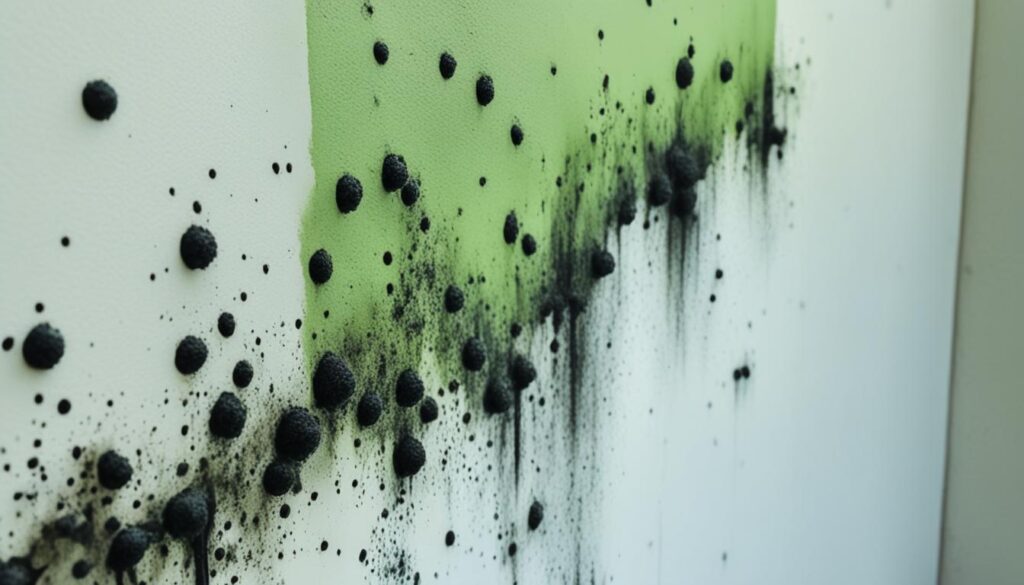
Understanding Black Mold Health Effects in Florida
Black mold is a serious concern in Florida, given its warm and humid climate, which provides a conducive environment for its growth. It is important to understand the health effects associated with black mold exposure in order to protect oneself and take necessary precautions.
Black mold, scientifically known as Stachybotrys chartarum, is a type of fungus that thrives in damp and poorly ventilated areas. In Florida, where high humidity levels are prevalent, black mold can be found in homes, offices, schools, and other buildings. Exposure to this toxic mold can have detrimental effects on both physical and respiratory health.
One of the main health risks of black mold exposure is respiratory issues. Inhalation of black mold spores can lead to inflammation of the airways, causing symptoms such as coughing, wheezing, and shortness of breath. Individuals with respiratory conditions, such as asthma or allergies, are particularly susceptible to these effects.
Additionally, prolonged exposure to black mold can cause allergic reactions in some individuals. Symptoms may manifest as itchy and watery eyes, runny nose, sneezing, and skin rashes. These allergic reactions can be bothersome and affect daily quality of life.
Furthermore, black mold exposure has been linked to more severe health complications, including chronic sinusitis, bronchitis, and even fungal infections in individuals with weakened immune systems. It is important to take black mold exposure seriously and seek professional help for remediation and prevention measures.
Key Takeaways:
- Black mold thrives in warm and humid environments, such as Florida.
- Exposure to black mold can cause respiratory issues, allergies, and other health complications.
- Preventive measures, such as proper ventilation and moisture control, are essential in minimizing black mold growth.
- Professional assistance should be sought for black mold remediation to ensure safe and thorough removal.
- Regular inspections and proactive steps can help prevent black mold recurrence.
Risks of Black Mold Exposure in Florida
The warm and humid climate of Florida creates ideal conditions for black mold growth, increasing the risks of black mold exposure for residents. Prolonged exposure to black mold can have various health consequences, including respiratory issues, allergies, and other potential health complications.
Black mold, scientifically known as Stachybotrys chartarum, thrives in damp environments with high levels of moisture. In Florida, where humidity is prevalent, the chances of encountering black mold are significantly higher compared to other regions of the country.
Exposure to black mold spores can trigger respiratory problems such as coughing, wheezing, and difficulty breathing. Individuals with allergies may experience heightened allergic reactions, including nasal congestion, sneezing, and itchy eyes. In some cases, prolonged exposure to black mold can lead to more severe complications, such as chronic sinusitis, asthma exacerbation, or even fungal infections.
“The warm and humid climate of Florida provides optimal conditions for black mold growth, posing increased risks to residents,”
To mitigate the risks of black mold exposure in Florida, it is essential to address moisture-related issues promptly. Proper ventilation and dehumidification can help prevent excessive humidity, reducing the favorable conditions for black mold growth.
Regular inspections of homes and buildings are crucial to identifying and addressing any potential mold infestations. Prompt remediation is necessary to eliminate black mold and prevent its further spread, especially in areas prone to moisture, such as bathrooms, kitchens, and basements.
Symptoms and Health Consequences of Black Mold Exposure
Recognizing the symptoms of black mold exposure is vital for early detection and intervention. Common signs of black mold exposure include:
- Respiratory Issues: Coughing, wheezing, shortness of breath
- Allergic Reactions: Nasal congestion, sneezing, itchy throat or eyes
- Skin Irritation: Rash, redness, itchiness
- Headaches, fatigue, or flu-like symptoms
If you suspect black mold exposure or experience any of these symptoms, it is essential to seek medical attention and consult with a qualified professional for mold assessment and testing.
Remember, prevention is key. By understanding the risks associated with black mold exposure in Florida and taking proactive measures to minimize moisture and prevent mold growth, you can protect yourself and your loved ones from the potential health complications of black mold exposure.
Next Steps: Prevention and Remediation
To prevent black mold growth and minimize exposure risks, consider implementing the following preventive measures:
- Keep indoor humidity levels below 50% by using dehumidifiers or air conditioners.
- Ensure proper ventilation in bathrooms, kitchens, and other areas prone to moisture.
- Fix any water leaks or moisture issues promptly.
- Regularly clean and dry areas that are prone to moisture, such as bathrooms and basements.
- Use mold-resistant paints or materials in areas exposed to high humidity.
In cases where black mold is already present, it is crucial to seek professional assistance for thorough remediation. Proper containment, removal, and disposal of black mold should be handled by trained experts to ensure the safety of occupants and prevent further contamination.
Symptoms, Prevention, and Remediation of Black Mold
If you are exposed to black mold in Florida, it’s important to be aware of the symptoms that may arise. These symptoms can vary depending on an individual’s sensitivity and the extent of exposure. Common signs of black mold exposure may include:
- Coughing
- Wheezing
- Skin irritation
- Respiratory or allergic reactions
These symptoms can be particularly concerning for individuals with respiratory conditions or weakened immune systems.
To minimize black mold growth and prevent further exposure, it is essential to implement effective prevention measures. Consider the following steps:
Maintain Proper Ventilation:
Ensuring proper air circulation in your home or building can help control moisture levels, reducing the risk of black mold growth. Use exhaust fans in bathrooms and kitchens, and open windows when possible to improve ventilation.
Control Moisture:
Since black mold thrives in damp environments, it’s crucial to keep moisture levels in check. Repair any leaks promptly, regularly inspect and clean areas prone to moisture, such as basements, bathrooms, and attics, and use dehumidifiers to reduce humidity.
Regular Inspections:
Regularly inspecting your property for signs of water damage or mold growth can help detect and address potential issues early on. Pay attention to musty odors, water stains, and any visible mold growth.
Should you discover black mold in your home or building, it’s important to seek professional assistance for remediation. Attempting to remove mold yourself can lead to further contamination and health risks. Professional black mold remediation services, like those offered by GreenPro Restoration, ensure proper and safe removal of the mold, as well as preventive measures to minimize its recurrence.
By being aware of the symptoms, implementing preventive measures, and seeking professional assistance for remediation, you can protect yourself and your property from the harmful effects of black mold.

| Prevention Measures | Effectiveness | Cost | Difficulty |
|---|---|---|---|
| Proper Ventilation | High | Low | Easy |
| Moisture Control | High | Low | Moderate |
| Regular Inspections | Medium | Low | Easy |
In comparison, proper ventilation and moisture control are highly effective preventive measures, while regular inspections provide moderate effectiveness. These measures are relatively cost-effective and manageable for most property owners and occupants.
Conclusion
In conclusion, understanding the risks associated with black mold exposure in Florida is crucial for safeguarding both personal health and property. The warm and humid climate of Florida creates ideal conditions for black mold growth, leading to increased exposure risks. Prolonged exposure to black mold can result in various health consequences, including respiratory issues, allergies, and other potential complications.
To prevent black mold growth, it is essential to take proactive measures such as maintaining proper ventilation, controlling moisture levels, and conducting regular inspections. These preventive steps can significantly reduce the chances of black mold infestation in homes and buildings. In the event of black mold contamination, seeking professional assistance is highly recommended.
Companies like Fix Mold Miami specialize in mold assessments and remediation services in Florida. Their team of experts can accurately assess the extent of mold growth, safely remove the mold, and implement preventive measures to avoid its recurrence. By engaging the services of professionals, individuals can ensure a thorough and efficient resolution to the black mold problem.
By staying informed about the risks and taking the necessary preventive and remedial steps, individuals can protect their health and property from the harmful effects of black mold exposure. Don’t wait for the situation to worsen; prioritize the well-being of you and your loved ones by addressing mold issues promptly and effectively.




